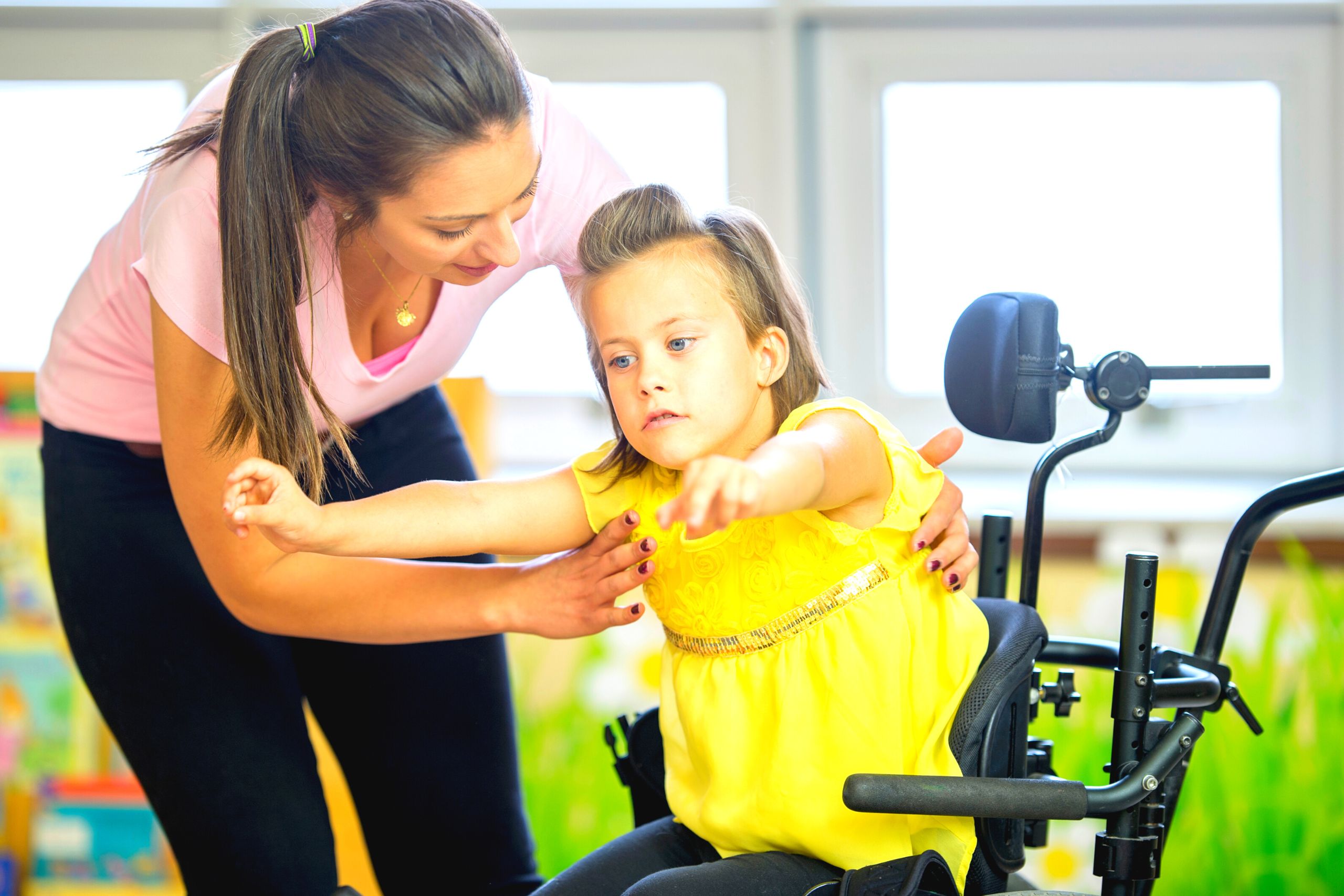Physical Therapy

The freedom to move influences children in so many integral aspects of growth and development. At FOCUS, the professionals in our Fort Myers physical therapy department work with children to help them achieve independent function and active participation - at home, in school, and across all settings.

When is Fort Myers Physical Therapy Recommended for Kids?
Physicians often recommend physical therapy for toddlers, children, or teens who face challenges with movement due to injury, illness or disability. Essentially, physical therapy for children might be needed anytime there is a problem with movement that limits a person’s daily activities.
Our caring and capable physical therapists use an array of treatments with the overarching goals of improving movement, building strength and sharpening skills necessary in everyday life and activities. We use evidence-based techniques to collaborate with families, health care providers and educators to develop the best plan of care for each child.
A plan of care may involve:
- Motor learning;
- Strengthening;
- Developmental activities (i.e., crawling, walking, climbing, etc.);
- Tone management;
- Activities focused on balance, coordination and posture;
- Cardiopulmonary endurance;
- Use of assistive technology (i.e., wheelchair, prosthetics, etc.);
- Improvement of circulation;
- Adaptation of daily routines and self care activities.
Doctors may recommend an assessment for physical therapy if a child struggles with movement in a way that hinders everyday activities. If you do not have a physician referral, we offer free screenings to determine whether this service may benefit your child.
Does My Child Need Physical Therapy?
Some conditions that may constrain proper movement and child development necessitating physical therapy include:
- Developmental delays;
- Genetic disorders;
- Injuries (sports-related and other)
- Burns and wounds;
- Limb deficiencies;
- Orthopedic disabilities;
- Stroke;
- Cerebral palsy;
- Muscle diseases;
- Hydrocephalus;
- Birth defects;
- Torticollis (aka "twisted neck");
- Tight heel cords;
- Juvenile rheumatoid arthritis;
- Traumatic brain injuries;
- Amputations;
- Spinal cord injuries;
- Heart and lung conditions;
- Scoliosis;
- Muscle coordination challenges.
In determining whether your child needs Fort Myers physical therapy services, our team will use the pediatric assessment tools of the widely-recognized ICF Model, as outlined by the American Physical Therapy Association. During a physical therapy evaluation, therapists will be examining your child’s:
- Body composition, height/ weight, length of legs;
- Gait (how he she crawls/ walks/ runs);
- Strength and flexibility;
- Coordination (gross motor and fine motor and postural skills);
- Endurance in basic movements/ tasks;
- Physical pain;
- Visual motor integration/ visual motor skills;
- Overall development in comparison to what is typical for peers;
- Issues noted on child’s IEP (individual education plan);
- Overall health status.
As the U.S. Centers for Disease Control and Prevention (CDC) notes, the ICF Model focuses on assessment of:
- Bodily functions/ structures/ impairment (the functioning level of the body);
- Activity limitations (functioning level of the individual);
- Participation and restrictions (functioning of the child as a member of society);
- Environmental factors that may be facilitators or barriers to physical function.
Understanding the development of a child’s motor performance as it relates to cognitive and social development is the foundation of pediatric physical therapy. At FOCUS, our therapy is play-based. It’s important for “our kids” to have fun, even as they are working to overcome strenuous physical challenges.

Benefits of Fort Myers Physical Therapy
Child development occurs on a continuum, but physical therapy can help children with disorders, delays, injuries or isolated challenges in numerous ways.
The ultimate goal of our physical therapy program is to improve mobility and function so children can be an independent and active participant in daily routines. Care plans are individualized. Depending on a child’s condition, some of the benefits of pediatric physical therapy may include:
- Reducing pain;
- Improving coordination;
- Increasing/ restoring joint range of motion;
- Increasing/ maintaining muscle strength and endurance;
- Helping with healing of soft tissue lesions;
- Reducing joint swelling and inflammation;
- Preventing deformity and contracture of limbs;
- Decreasing spasticity/ muscle spasms;
- Improving mobility, whether through walking or with assistive technology;
- Reducing stress/ improving confidence;
- Educating children and families.
The outpatient child physical therapy used at FOCUS is often in coordination with school-based physical therapy. School districts typically get involved when issues with mobility/ transportation/ or related accessibility impedes a child’s ability to receive an education.
Outpatient therapy often focuses on goals and activities for home and community settings that might not necessarily be addressed in the school’s physical therapy program. While school-based physical therapy will focus on what is educationally-necessary for the child, FOCUS physical therapy is medically-based, which means we are looking more at global functions - not solely educational needs.
What Are the Qualifications of Florida Physical Therapists?
Pediatric physical therapists at FOCUS are highly-skilled professionals who have a special interest in working with children and families to ensure optimal physical growth and development.
As in many practices, a single doctor oversees the daily work carried out by physical therapy assistants, who have an associate degree from an accredited program. A pediatric physical therapist must be educated in a program accredited by the American Physical Therapy Association, often specializing or minoring in an area like pediatrics. Licensing is handled by the state, through the Florida Board of Physical Therapy.
There are also continuing education requirements for both physical therapy doctors and therapy assistants.
We believe the best therapy results are achieved when our efforts closely involve parents and families. That’s why every session involves family education, wherein we discuss progress and challenges, as well as ways our strategies can be implemented in other settings.
Our compassionate Fort Myers physical therapy team is committed to helping your child grow, heal, and move on.
